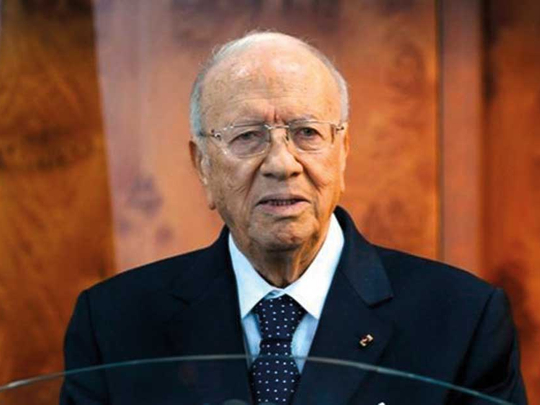
Tunisia: Tunisia’s prime minister has named new interior and defence ministers as part of a broader government reshuffling that the African country’s president says creates a “war cabinet” to fight terrorism and corruption.
Prime Minister Yousuf Shahid on Wednesday appointed Lofti Ebrahim as interior minister and Abdul Karim Zbidi as defence minister. Ebrahim has been the commander of the National Guard, while Zbidi previously oversaw defence in 2011-2013.
Shahid also announced new ministers in the areas of finance and development, investment and international cooperation, and education.
President Beji Qaid Al Sebsi said in a statement that Tunisia’s government is gearing up to be a “war government.”
Al Sebsi says the priorities will be to lead “the war on terrorism and corruption” and to fight unemployment and the economic imbalance between regions.
The compromise cabinet should give Shahid the impetus to push ahead with tough reforms on public sector wages and the pension system, designed to improve Tunisia finances in line with IMF demands.
Shahid, in power for just over a year, restored Ridha Shalgoum, a former finance minister close to the ruling Nidaa Tunis party, to that ministry.
He also appointed Al Nahda member Taoufik Rajhi, one of his economic advisers, to the new post of economic reforms minister.
Six years since the 2011 uprising that ousted autocrat Zine Al Abideen Bin Ali, Tunisia has been held up as a model by avoiding the violence that affected other nations after their “Arab Spring” revolts.
However, successive governments have struggled to enact fiscal reforms that have been delayed by political infighting and government wariness of social tensions over jobs and economic conditions that helped spark the 2011 uprising.
Nidaa Tunis allies were appointed to six of the 13 cabinet changes. Al Nahda kept three posts and the new economics reforms portfolio.
Nidaa Tunis hardliners had been pushing Shahid hard for more representation in the cabinet to better reward their 2014 election victory, while rivals in the power-sharing government pushed back.
Al Nahda said the party saw no reason for a major overhaul other than filling vacant minister posts.
Political squabbling and Tunisia’s compromise-style politics to maintain stability have in the past delayed economic reforms as parties jockey for position.
This week the powerful UGTT labour union warned it could intervene as mediator, something it has done in the past when tensions between secular Nidaa Tunis and Islamist Al Nahda threatened to scuttle Tunisia’s young democracy.
“Shahid’s deal with Nidaa Tunis and Al Nahda is likely to ease tensions and to boost government stability,” said Riccardo Fabiani at Eurasia Group.
“After scheduled local elections in December, this relationship is likely to gradually deteriorate again as tensions rise ahead of the 2019 presidential and legislative ballots,” he said.












